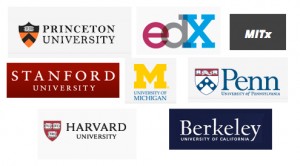By Katrina Schwartz
The sudden growth of free, top-shelf online education sites has the potential to democratize high-caliber education that's long been reserved for only those who could afford it.
But as these new sites begin to blaze a new path to the possibility of a level playing field, it's still unclear whether taking courses in subjects like artificial intelligence or game theory will eventually lead to employment.
Are certificates of online course completion from venerable institutions viable substitutes for diplomas and degrees from the same brick-and-mortar four-year universities? Though professors who teach these Massive Open Online Courses are well respected in their fields, is their stamp of approval enough to land a job?
If any job market would be receptive to a non-traditional educational path, one might think it would be Silicon Valley. There are plenty of examples of tech tycoons like Steve Jobs, Bill Gates, and Mark Zuckerberg who dropped out of school or otherwise bucked the system only to become wildly successful. It’s a hub that values creativity and technical skills and might seem a likely environment where a company might be willing to hire a person on the basis of their knowledge rather than where where they got their degree.
If that's somewhere on the horizon, it's not necessarily happening yet. When contacted about these online education sites -- courses taught by professors at MIT, Harvard, Stanford, Princeton, Berkeley -- many companies directly refused to talk about how their human resources departments would view a non-traditional candidate. Many had never even heard of Coursera, edX, or Udacity.



